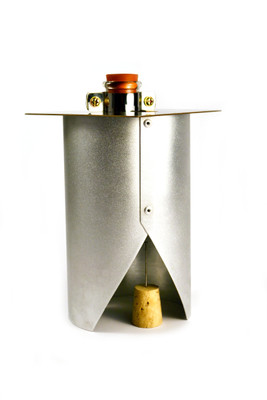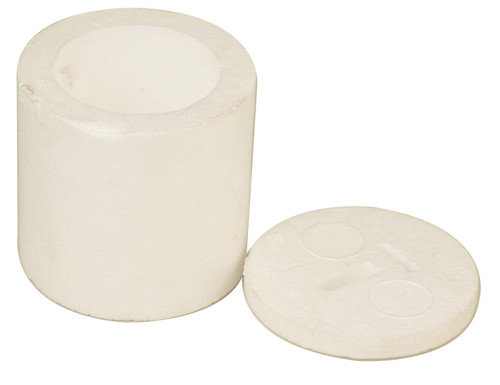Product Overview
-
- The food Calorimeter allows students to determine the amount of energy released through the burning of food.
- This easy method involves the measuring of the change in temperature of a sample of water from the combustion of a small amount of food.
- The experiment introduces concepts in thermodynamics and leads to an understanding of energy and its relation to food consumption.
- Experiment Guide included with product
- Kit contains: Erlenmeyer Flask (125ml), Cylindrical Metal Stand 4" Diameter 6.75" Tall , Metal Suspension plate 4.5" x 4.5", Cork with Nail (Food sample Holding assembly), Rubber stopper.
Calorimetry is the science of measuring the change of energy involved in a chemical process. There are many different designs of calorimeters, but each is devised to measure the heat that is either released or absorbed during a chemical reaction or phase change.
Our Food Calorimeter Kit allows students to determine the amount of energy released through the burning of food. This easy-to-use method involves measuring the change in temperature of a sample of water from the combustion of a small amount of food. The included experiment guide introduces concepts in thermodynamics and leads to an understanding of energy and its relation to food consumption.
Students can determine the energy caloric content of a sample of food using thermodynamic equation. The stored energy inside the food sample burns and is converted into heat energy which transfers to the water in the flask above. The temperature change of the water is used to determine the amount of heat that was absorbed by the water, and thus the amount of heat released by the burning food. By dividing the amount of heat transferred by the amount of food burned, students will be able to find the energy per gram in the sample, and then compare this to the food's nutritional label.
Required but not included:
- Matches or lighter
- Thermometer or temperature probe
- Digital scale with 0.1g accuracy
- Dry food samples with some fat content (e.g popcorn, nuts, chips, cereal, croutons, etc.)








